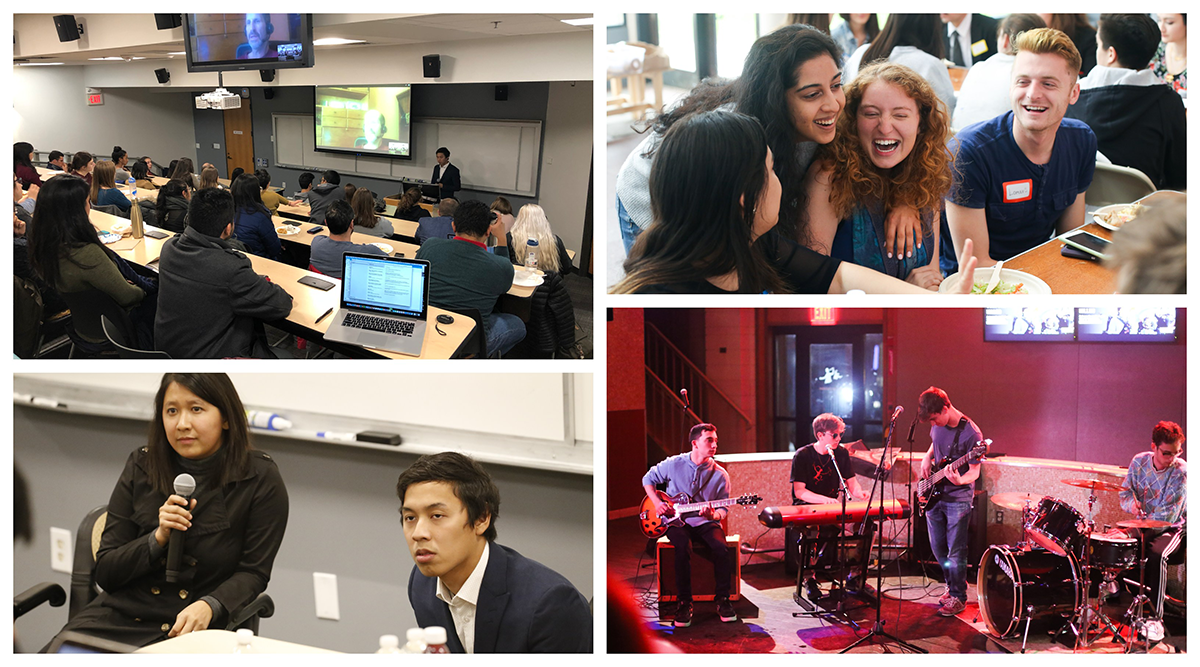Tufts Amnesty International

Tufts Amnesty International is a student-led organization that joined the Institute for Global Leadership in 2009. The organization brings the mission of Amnesty International, the world’s largest human rights organization, to the Tufts community and Greater Boston area.
“It’s easy to feel useless in a world where human tragedy is so frequent, yet so distant. Tufts Amnesty International allows me to do my part in amplifying the tribulations of those whose basic human rights have been violated to the few people with the power to help them,” said Sophomore and treasurer Arlen Belitsky.
Through weekly discussions, panels, campaigns, and other programs, Tufts Amnesty International educates and mobilizes its members to raise awareness of, and combat, global human rights abuses. This past year, it led campaigns and organized events on a range of human rights issues, including the Rohingya crisis in Myanmar and Bangladesh, gun control, the protection of undocumented individuals, and gender violence.
Tufts Amnesty International partners with community members, leaders, and organizations to build strong foundations for sustained activism and to empower individuals to take effective action. Build a Longer Table is one element of the larger Amnesty International USA #iWelcome campaign that seeks to welcome local refugees and to educate community members about the refugees who have been resettled in their towns. The premise is that, in this political climate, instead of building a wall to keep people out of our country, communities can build a longer table to invite them into our communities. The goal of this lunch was not only to have a meal together, but also to engage refugee families and the organizations that support them in fun family activities.
The gun violence epidemic is one of the largest human rights crises that Tufts Amnesty International has been addressing, with more than 30,000 deaths in the U.S. attributed to gun violence in the last year. AI organized a panel to address these issues. It featured: Judi Richardson, whose daughter was a victim of gun violence; Representative Marjorie Decker of the 25th Middlesex District, who sponsored the successful Extreme Risk Protection Order bill, H.3610 (also known as Massachusetts’ “red flag” bill); Boston City Councilor Lydia Edwards of District 1; Zoe Grover, the Executive Director of Stop Handgun Violence, a local nonprofit that “works to prevent firearm violence through public awareness, education, policy advocacy and law enforcement strategies –without banning guns”; and Professor Michael Siegel of the Community Health Sciences Department at Boston University. As explained by outgoing president Saira Madarasmi, the panel was assembled “...to emphasize the impact of gun violence on individuals, on communities, and on the nation as a whole.”
Last spring, Tufts Amnesty International hosted a film screening of the documentary “Mother, Daughter, Sister” to raise awareness about the Rohingya crisis in Myanmar. The event began with a Skype conversation with Jeanne Hallacy and Gregg Butensky, human rights activists and the filmmakers. In the film, four Rohingya and Kachin women, whose lives were affected by rape and sexual violence in Myanmar, shared their stories. After the showing, participants had the opportunity to hear from Esther Htusan, who answered questions about her experiences as a journalist in Myanmar. She is a member of the Pulitzer Prize-winning Associated Press team currently focusing on Myanmar’s ongoing human rights crisis.
In April, Tufts students gathered in Hotung Cafe to listen to some great tunes and advocate for human rights at the Tufts Amnesty International Chapter’s annual Jamnesty! Music for Human Rights event. The night featured performances by Burst Into Dames, The Blank Quartet, and Gam Solub, three student music groups. While enjoying food and music, students had the chance to sign letters addressed to key stakeholders in three human rights cases, hoping to enact change and evoke urgent action.
For Events Coordinator Varisa Limpijankit, A21, an international student, the club is especially important as it raises awareness about important issues that are often overlooked on campus because they are international. “It’s easy to get comfortable in the Tufts bubble,” Limpijankit says, “But I’m grateful for the opportunities Amnesty has given me to break out of this bubble and get involved with the greater Boston community and beyond.”
“The organization also helps break us free of purely academic circles,” President Amy Tong, A21, adds. “We have the ability to apply what we learn in the classroom to current world issues, and through events and campaigns, interact with and fight alongside individuals from all walks of life who have been affected by the stories we read about in the news.”
